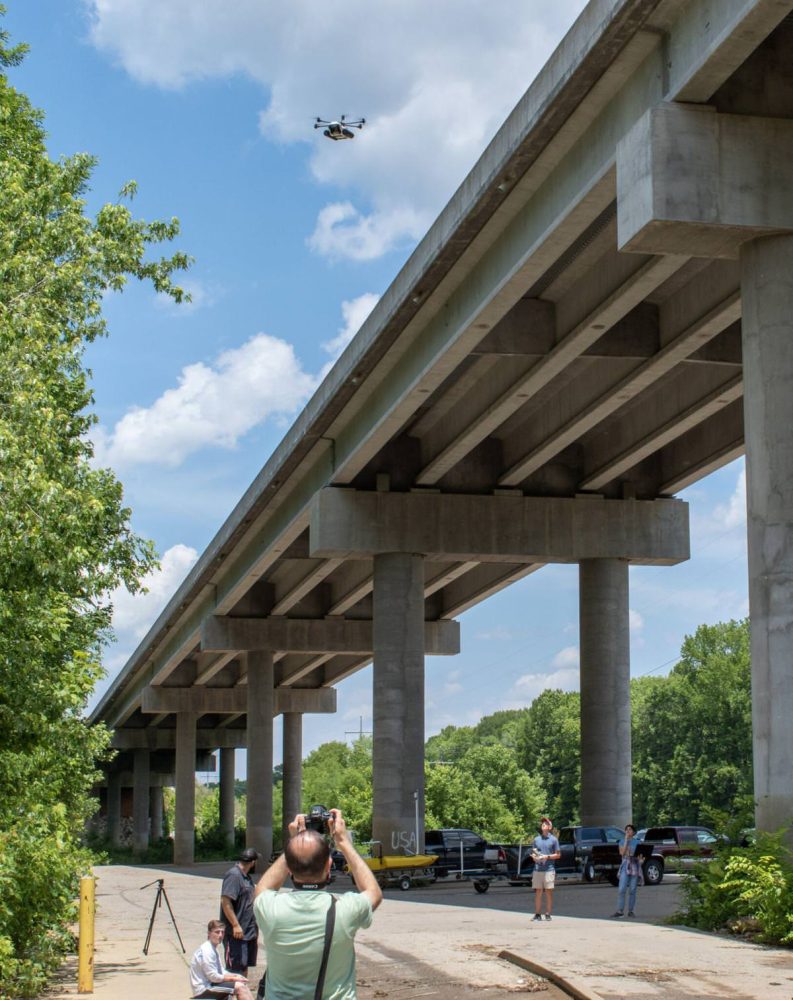
A bipartisan bill has been introduced in the Senate that seeks to create the mechanisms and allot $100 million in funding for the deployment of drones in infrastructure inspections overseen by local, state, and US government entities.
The Senate’s newly tabled Drone Infrastructure Inspection Grant (DIIG) Act aims to promote use of drones in inspections across the US, and support the training of pilots and technicians who will be needed to operate that increased aerial activity. Sponsored by Jacky Rosen (D-NV), John Boozman (R-AR), and Richard Blumenthal (D-CT), DIIG echoes legislation introduced in the House last September to “establish in the Department of Transportation a drone infrastructure inspection grant program and a drone education and training grant program, and for other purposes.”
Read: Will drones be the MVPs of US infrastructure renewal?
Successful passage of the Inflation Reduction Act on Sunday has lifted hopes among Biden administration supporters that there may be a way yet of passing the infrastructure-focused Build Back Better bill in modified form to overcome opposition of key Senate Democrats.
Even if that doesn’t happen, both the September House package and DIIG make it clear legislators understand aging and fatiguing infrastructure across the US require maintenance, and that deployment of drones to inspect and collect data on bridges, highways, dams, and other structures is key to that task.
“As we make historic investments in fixing and updating our nation’s infrastructure, we can rely on the latest technology to identify physical vulnerabilities that need to be fixed,” Rosen said. “This bipartisan legislation will help local governments invest in drones and skilled workers to ensure America’s existing infrastructure remains safe.”
DIIG would authorize $100 million in competitive grants for the use of drones – US-made, the bill notes – in performing critical infrastructure inspection, maintenance, or construction projects.
It would also earmark an additional $100 million for workforce training and education programs of pilots and technicians needed to effectively perform missions and analyze data collected from them.
Read: NY’s Thruway Authority and NUAIR to test drone inspections of state highway infrastructure
Not coincidentally, a communiqué by the three authors of the bill specifies funding would “also help research universities like the University of Nevada, Reno and University of Nevada, Las Vegas have access to grants to train the next generation of workers who operate drones” – an evident shout-out to Rosen’s home state.
That pit stop for constituency politicking notwithstanding, the bipartisan trio says DIIG will provide important services to residents of all US states by expanding the use of drones in often overdue infrastructure inspection and maintenance work.
“Using advanced technology for infrastructure safety inspections will improve and strengthen our bridges and railways,” said Boozman. “In Arkansas, we’ve invested in modernizing our capabilities, including utilizing drones and other emerging technologies. The DIIG Act continues to build on this momentum while also helping develop the workforce to operate these cutting-edge tools.”
FTC: We use income earning auto affiliate links. More.



Comments